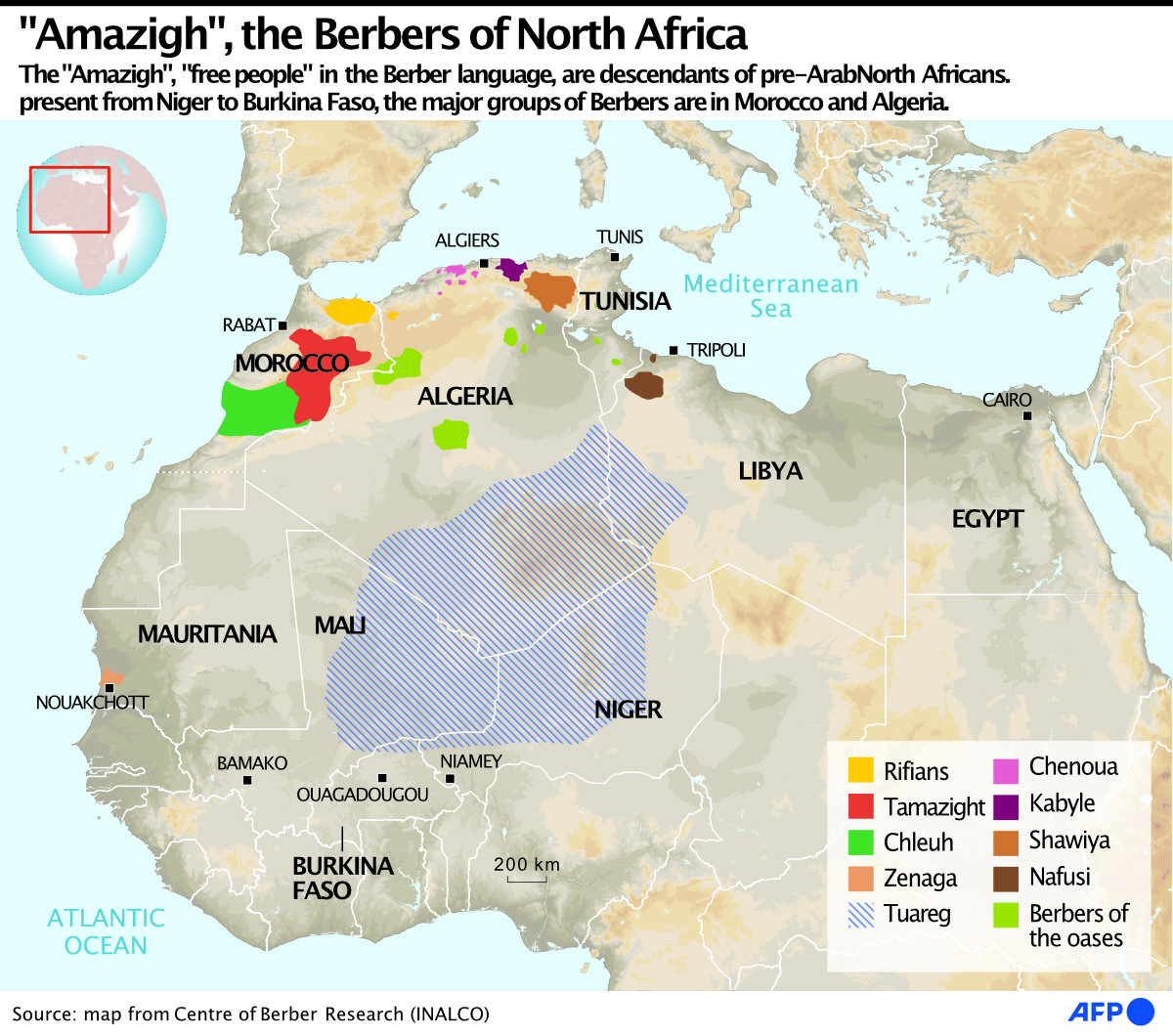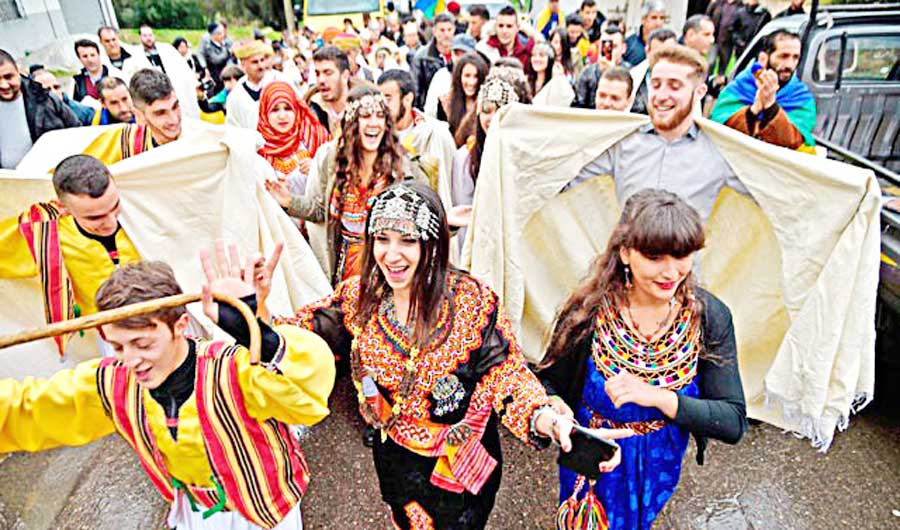ALGIERS: Thousands rioted in Algeria’s northern Kabylie region 20 years ago this week — a symbolic chapter in the long fight for Berber rights.
The indigenous group is also in the vanguard of the Hirak anti-government protests that have rocked the country since 2019.
The Berbers are descendants of pre-Arab North Africans, whose historic homelands stretched from the Canary Isles and Morocco to the deserts of western Egypt.
They refer to themselves as the Amazigh, meaning “free people,” and have long fought for recognition for their ancient culture and language in modern states across the region.
Here is an overview of the Berbers’ varying fortunes in the Maghreb and Libya.
The Berbers comprise about 10 million people in Algeria, making up roughly a quarter of the country’s population of 40 million.
The majority live in Kabylie, a restive, mountainous region to the east of the capital Algiers.
On April 18, 2001, a teenager held at a gendarmerie post near Tizi Ouzou, the capital of Kabylie, was hit by a hail of bullets. He died two days later.
Massinissa Guermah’s death sparked riots, as Kabylie was preparing to celebrate the 21st anniversary of its fight for recognition of its Berber identity.

An estimated 126 people died in the two months of unrest, many of them youths shot in clashes with riot police.
Thousands of others were wounded in the crackdown.
In 2002, Berber was finally recognized as a national — but not an official — language, allowing it to be taught as a second language in some Berber areas.
Its recognition as an official language only came with constitutional reforms in 2016.
Berber New Year was celebrated as an official feast day for the first time on Jan. 12, 2018.
Morocco is home to the world’s largest Berber community.
According to a 2014 census, more than a quarter (26.7 percent) of Morocco’s population of 35 million use one of the country’s three main Berber dialects.
Their language was only given official status alongside Arabic in a new constitution in 2011.
Their Tifinagh alphabet now appears on many public buildings next to Arabic and French.
Since 2010, the Tamazight TV channel has been dedicated to promoting Berber culture.
In Libya, the Berbers were persecuted under former ruler Muammar Qaddafi.
However, they make up around 10 percent of the population, living mainly in the mountains west of Tripoli or in the vast southern desert regions.
In Tunisia, official statistics based on ethnicity are prohibited.
While their traditional heartland is in the south, an exodus from the countryside means Berbers today are mainly found in the capital Tunis.

Morocco’s mountain Berbers left in the coldMorocco adopts law confirming Berber as official language

